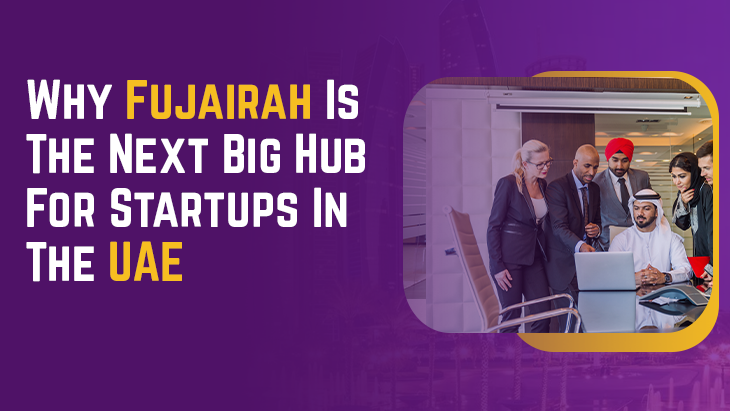In today’s interconnected world, attracting foreign direct investment (FDI) has become increasingly difficult as countries compete for global capital. However, Dubai has stood out as a prime destination for foreign investors due to favourable working conditions, political and economic stability, low tax rates, and free new investment zones. The city’s strategic initiatives and forward-looking policies have made it the leading global financial hub, bridging the gap between East and West.
A Resilient and Thriving Business Climate
Dubai’s commitment to entrepreneurship and economic growth remains unwavering in the face of global challenges. Policies encouraging FDI have regained momentum in the city amid the financial turmoil caused by the pandemic in 2020 and 2021. These developments have led to a significant increase in FDI inflows, and investors have flocked to the Dubai economy, which has a dense, skilled workforce and a vibrant industry.
Dubai’s economy is expected to grow by 4.4% in 2022 and 2.8% in the first quarter of 2023 compared to the previous year. These figures highlight the city’s muscular financial strength and ability to attract investors and top talent worldwide. The mainland business setup in Dubai has become particularly appealing due to the city's wealth, high standard of living, and reputation as a safe and dynamic place to live and work.
D33 Function: Scenarios For Future Development
Looking ahead, Dubai’s D33 investment strategy sets ambitious goals for the next decade, with plans to double the city’s economy by 2033. A key element of its strategy is that FDI will increase to AED 60 billion annually by 2023 and 2033. Current trends show Dubai is well on its way to achieving this goal, including FDI, which has played a vital role in the city’s expansion and growth.
FDI is vital in transforming Dubai’s economy, especially in real estate, tourism, banking, technology, and logistics. These investments have strengthened economic growth and facilitated technology and knowledge transfer, increasing local capacity and competitiveness. In addition, FDI has stimulated the development of new industries and created jobs, contributing to the emirate’s overall economic vitality.
Key Investment Areas in Dubai
Dubai has long been a prime investment destination, with a record number of new companies listed in recent years. Despite global economic uncertainty, the city’s strategic partnership and trade agreements, such as the UAE-India Comprehensive Economic Partnership Agreement (CEPA), have strengthened trade ties and boosted business. Dubai’s aspirations in the market under CEPA have been weakened. It benefits from access to its 0% customs duty on its tariff lines, attracting foreign investors.
Dubai has expanded cooperation with China in the energy sector, and recent agreements show a strong presence of FDI in the country’s energy sector. Meanwhile, the emirate attracts tech entrepreneurs, especially those interested in free zone company formation services in Dubai. Dubai’s state-of-the-art technology infrastructure is a key attraction for fast-growing companies looking for quick exits and profitable opportunities.
The main industries that attract foreign investment in Dubai are real estate, greenfield projects, healthcare, the stock market, and renewable energy. These projects provide opportunities for investors, giving Dubai a reputation as a global financial hub.
Foreign Investment Opportunities in Dubai
Dubai has applied several strategies to attract FDI, including relaxing capital repatriation regulations and taxes, permitting the free drift of labour, and providing incentives to international traders. The 2021 amendments to the Commercial Companies Law (CCL), allowing 100% overseas ownership of onshore corporations in certain sectors, have further boosted FDI. This coverage trade, which eliminated the preceding 49% cap on overseas possession, has made Dubai even more attractive to international traders.
The town gives three significant classes of investment possibilities:
* Positive List Activities: Allowing onshore businesses 100% foreign possession in positive sectors.
* Free Zones: Offering one 100% foreign possession for organisations established within Dubai's free zones.
* Onshore Firms: Permitting a 51% Emirati ownership and 49% foreign ownership structure.
The UAE's NextGen FDI initiative, released in 2022, further underscores Dubai's commitment to attracting overseas agencies, especially those in virtual technologies. This initiative streamlines company incorporation, banking offerings, visa processing, and lease incentives for tech corporations moving to the UAE, making it easier for groups to set up and grow their operations in Dubai.
Strategic Location and Strong Economy
Dubai’s strategic location at the crossroads of East and West makes it one of the most connected cities in the world. The city’s world-class infrastructure allows business travellers and tourists to reach most destinations within eight hours. This access and Dubai’s strong and diverse economy have made it an attractive destination for foreign investors.
Once heavily dependent on oil revenues, Dubai successfully diversified its economy, and real estate, tourism, and other industries are booming. These diversifications have created more investment opportunities, especially in real estate and hospitality, making Dubai an easy and attractive investment place.
Investment Incentives and Market Trends
The government of Dubai offers various incentives to property investors, including tax benefits, flexible business relocation in Dubai schemes, and opportunities for 100% foreign ownership. These incentives, these motivations, and the booming real estate market have attracted both domestic and international investors. In 2023, the city has seen significant investment in luxury apartments, with demand driven by strong rental yields and the prospect of increased capital.
Looking to the future, experts predict continued growth in the Dubai real estate market by 2024, driven by government initiatives to extend resident visas for investors, possibly reduce communications fees, etc. The scheme will enhance its appeal and attract more foreign investors.
Conclusion
Dubai’s growth as a global financial hub is a testament to its visionary leadership and strategic planning. The city attracts foreign investors worldwide with a strong economy, investment opportunities, and a business-friendly environment. As Dubai moves forward with ambitious plans, it remains a beacon of opportunity for those willing to take advantage of its growth and prosperity.











Leave a reply